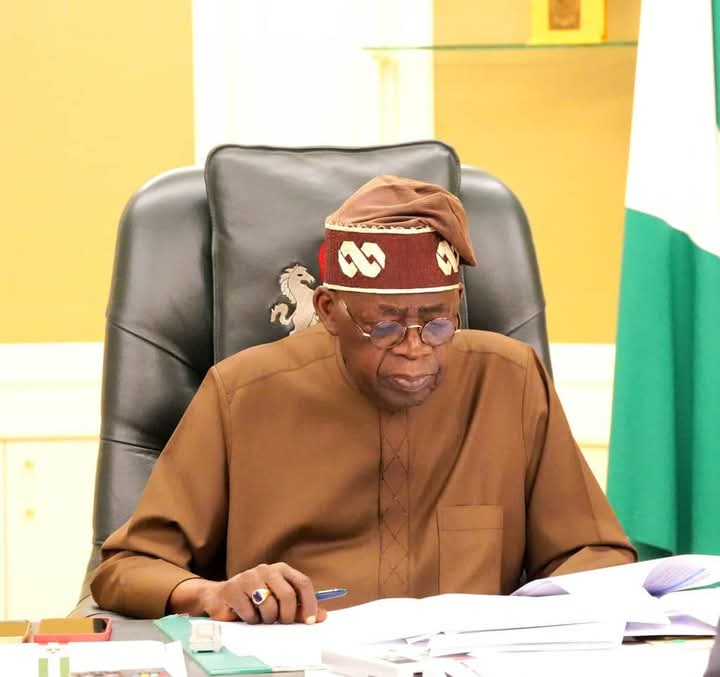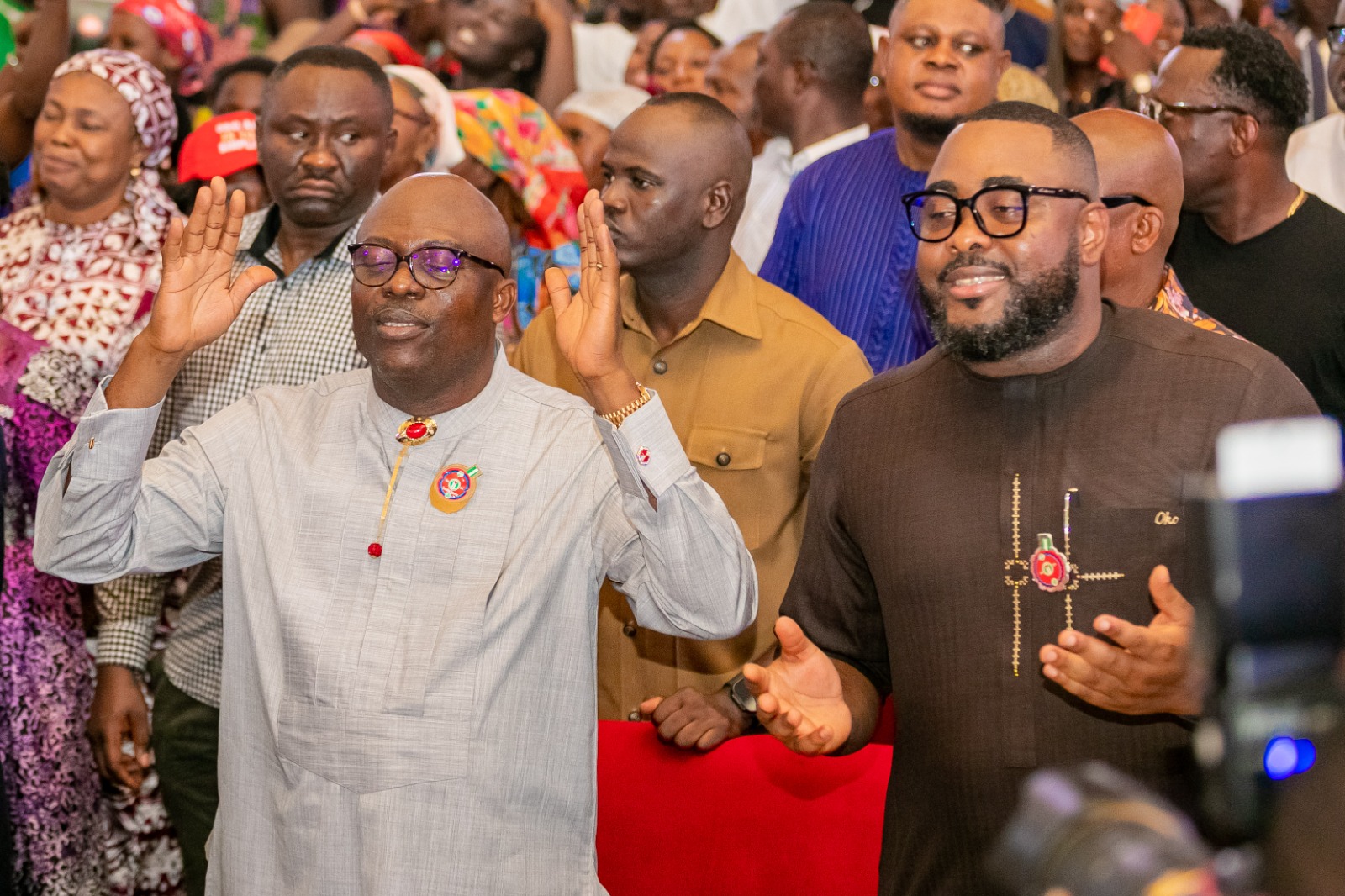Editorial
No To Monitoring Of Social Media
Notwithstanding the fact that a bill to criminalise “Hate Speech” is receiving the attention of the All Progressives Congress (APC)-dominated National Assembly, the Federal Government in an ostensibly panicky measure, recently directed Nigeria’s security agencies to go after those it considers to be threatening the nation’s unity through hate speech.
President Muhammadu Buhari had, in a short but most discouraging nationwide address upon returning from his 105-day medical vacation, dwelt more on how his government intends to deal ruthlessly with purveyors of hate speech in the regular and social media, given marching orders to security operatives.
In compliance with President Buhari’s directive, the Inspector-General of Police, Ibrahim Idris, said offenders would be prosecuted under the Terrorism Prevention Act, considering the fact that Vice-President Yemi Osinbajo had himself promised that hate speech “will be taken as an act of terrorism”.
More worrisome is the military’s avowed commitment to monitoring “troubling activities and misinformation capable of jeopardizing the unity of the country” in line with the Presidential directive.
The questions on the lips of many Nigerians now are: will this directive not infringe on the constitutionally guaranteed freedom of speech? Who decides what constitutes hate speech? Wouldn’t our overzealous security agencies over-step their bounds in enforcing the directive?
Given the nation’s current security operatives’ proclivity for obsequiousness to the APC-led Federal Government and their obsession with implementing Presidential directives, no matter how sinister they may be, it remains to be seen how this move would not trample upon the rights of the citizenry and retard the growth and progress of democratic governance in the country.
Apparently exasperated by what is obviously a dangerous move, a civil rights group, the Social Economic Rights and Accountability Project (SERAP) had petitioned President Buhari over the Nigerian military’s monitoring of Nigerians on social media platform.
SERAP had appealed to Buhari to direct the military to immediately stop the move as it infringes on the natural and constitutional rights of the citizenry, especially the freedom of speech and expression.
In a statement by its Deputy Director, Timothy Adewale, penultimate Friday, SERAP urged the President to ensure that the military complies with the letters and spirit of the 1999 Nigeria’s Constitution as amended and Nigeria’s obligations under the International Human Rights convention.
Noting that the military’s action will directly violate the constitutionally and internationally guaranteed rights to freedom of expression and privacy on-line, the organisation argued that monitoring the social media was neither necessary nor proportionate as it portrays the Buhari administration as working to control the political and social media space which is at variance with universally acceptable norms.
SERAP considers the development as censorship of the media from reporting sensitive and critical issues relevant to the public but controversial to government.
The Tide endorses SERAP’s stance as the move will have deleterious impact on the media just as it poses serious threat to citizens’ rights to meaningfully participate in governance. Worse still, the action by the military could jeopardise Nigeria’s delicate unity and pose grave danger to its nascent democracy.
Classifying the legitimate exercise of freedom of expression as hate speech is counter-productive in the exercise of the rights to freedom of expression and privacy. Nigerian should be allowed to speak the truth to the government and stand up for their rights.
Rather than haunt or crucify Nigerians for ventilating their views on the social media platform, the Federal Government should advance the frontiers of digital technology with a view to ensuring participatory democracy and constitutionally guaranteed freedoms.
While it cannot be gainsaid that the inherent contradictions in the polity had given impetus to the tension created by the so-called hate speeches, it behooves the Buhari administration to speedily provide a veritable platform for dialogue with the agitators of restructuring to which that obnoxious directive is obliquely targeted.
President Buhari must be mindful of not being seen by the international community as intolerant of opposition in a democratic setting, considering how he, as military Head of State, some decades ago, clamped down on the media through the dreaded Decree 4 of 1984.
Editorial
Israel-Gaza War: Sustaining The Ceasefire

Editorial
No To Hike In Telecom Tariffs

Nigerians are outraged by the Federal Government’s approval of a 50 per cent increase in telecommunications tariffs, with organised labour threatening to mobilise workers to boycott telecom services. The Nigeria Labour Congress (NLC) and the Trade Union Congress of Nigeria (TUC) have described the upcoming tariff as outrageous, lamenting that it will worsen the already harsh living conditions of workers and the masses.
Similarly, the Coalition of Northern Groups (CNG) rejected the hike, stating that it was ill-timed and did not take into consideration the struggles of Nigerians. The Human Rights Writers Association of Nigeria (HURIWA) also criticised the review, calling it an illegal, unconstitutional, and oppressive policy that undermines the fundamental rights and freedoms of Nigerians. It is a difficult moment for the industry.
Recall that the Nigerian Communications Commission (NCC) approved a 50 per cent increase in tariffs for telecom operators last Monday, instead of the 100 per cent raise that operators had requested. This decision quickly angered the consumers’ association, which criticised the government’s approval as not only punitive but also insensitive.
We wholeheartedly agree with the stance of labour and other groups on this very sensitive matter. We unequivocally condemn the 50 per cent increase in telecom tariffs. Though telecom operators cite higher operational costs and inflation as reasons for the hike, the timing and impact raise serious concerns in the current economic situation. It is a blatant attack on the well-being of the Nigerian worker and a betrayal of the people to corporate interests.
Telecommunication services are essential for daily communication, work, and access to information. However, the average Nigerian worker already spends approximately 10 per cent of their wages on telecom charges. For a worker earning the current minimum wage of N70,000, this means an increase from N7,000 to a staggering N10,500 per month or 15 per cent of their salary, a cost that is unsustainable.
This hike exemplifies the government’s apparent ease in prioritising corporate profits over citizens’ welfare. It is shocking that the government approved a 50 per cent tariff increase for telecom companies within a month, yet took nearly a year to approve the recent minimum wage for workers, despite the rising cost of living and inflation eroding purchasing power.
The questions are: When will the government stand up for the citizens it swore to protect? When will the National Assembly rise to its responsibility and hold the Executive accountable for policies that blatantly undermine the welfare of the majority? When will the common man finally heave a sigh of relief in Nigeria? We urge the government, the NCC, and the National Assembly to review the implementation of this ill-advised increase.
It is difficult to understand the state of mind of the managers of the nation’s economy. Sadly, these managers have alienated themselves from the reality of today. How can a government approve a 50 per cent hike in the tariff of telecom services when even the N70,000 minimum wage has been eroded by inflation, electricity tariff hikes, exorbitant fuel costs, transportation, and other social services?
Even if there is a need for an increase, why does it have to be 50 per cent? If, after dialogue, it is agreed that a raise is necessary, we should all consider a more reasonable increase rather than the 50 per cent hike. Fifty per cent is excessive and will only worsen the already harsh living conditions of workers, placing a heavier burden and more suffering on them and the general population.
The recognition of telecommunication services as essential components of modern society cannot be overstated. In an era characterised by rapid digital transformation, these services are fundamental not only for personal communication but also for facilitating broader socio-economic engagement. The proposed tariffs increase in the telecom sector raises critical concerns regarding equitable access to vital services that support communication, education, healthcare, and commerce.
In a democracy, the people should be the central focus of all government actions and policies. Every decision should aim to improve their quality of life. This plan must be carefully scrutinised with the welfare of citizens in mind. An increase in telecom tariffs will negatively impact many Nigerians, as the internet has become an essential tool for business, communication, and daily activities.
The Tide calls for the immediate suspension of the 50 per cent hike in tariffs. Instead, we recommend a more reasonable adjustment of a maximum of 10 per cent, which balances industry sustainability with the current economic realities in the country. We also demand that the NCC engages in genuine, inclusive consultations with consumer advocacy groups, civil society organisations, and other grassroots stakeholders before implementing any tariff adjustments.
Editorial
Hurray, Siminalayi Fubara Is 50!

Born on January 28, 1975, in Opobo Town, Mr. and Mrs. Joseph and Love Fubara welcomed their second of five children and first son. His father, a former soldier who completed an overseas training tour of duty, instilled in him a strong sense of discipline and dedication. His mother, a civil servant, taught him the importance of hard work and perseverance.
He received his primary education at Opobo Primary School and continued his studies at Comprehensive Secondary School in Opobo. His passion for numbers led him to pursue a degree in Accountancy at the then Rivers State University of Science and Technology, now known as Rivers State University.
Upon completion of his Bachelor’s degree, he pursued further education and obtained a Master of Business Administration (MBA) and a Master of Science (MSc) from the prestigious University of Port Harcourt in 2013 and 2016, respectively. Fubara’s dedication to his studies and his commitment to personal growth have shaped him into the accomplished individual he is today.
Sim, fondly called by his colleagues, started his career in 2003 as a principal accountant at the Rivers State Senior Secondary Schools Board. His dedication led to his promotion to Director of Finance and Accounts at the Government House in 2015. In March 2020, he was appointed Permanent Secretary and then became the Accountant-General of Rivers State on December 23, 2020.
His achievements are numerous, as he is a Knight of the St. Christopher (KSC) Order of the Church of Nigeria Anglican Communion. Additionally, he holds the prestigious traditional chieftaincy title of Amaopusenibo of Opobo Kingdom. The Governor’s commitment to family is evident through his marriage to Valerie Ibiere Fubara, with whom he shares three beautiful children.
Among Siminalayi’s other significant qualifications and accomplishments are his fellowship with the Nigerian Institute of Management and his fellowship with the Association of National Accountants of Nigeria (ANAN). He holds membership in the Chartered Institute of Forensic and Investigative Auditors. His impressive background has gained him the trust and support of the Peoples Democratic Party (PDP), leading to his victory in the party’s governorship primaries for the 2023 general elections.
Fubara embodies a leadership style defined by simplicity and compassion. He exhibits patience, confidence, and empathy in his interactions with those he serves. His humility and faith in God make him trustworthy. Representing the younger generation, Sim leads with the slogan “Consolidating and Continuing the New Rivers Vision,” focusing on developing infrastructure, healthcare, education, security, agriculture, and investment opportunities for Rivers State.
The bravery exhibited by His Excellency in resisting godfatherism has attracted respect from a wide array of Nigerians, Africans, and supporters of democracy around the world. He emphasises serving the interests of the people of Rivers over any godfather. His actions unify diverse groups in the state, promoting a sense of belonging among various ethnicities.
Our affable Governor exemplifies robust moral leadership rooted in his Christian beliefs. As a devoted Knight, he shows compassion and selflessness in his governance. He fosters an environment where all religions can peacefully coexist. Fubara sponsored Muslim pilgrims for the 2024 Hajj and personally wished them well, encouraging them to pray for the state and Nigeria. His religious tolerance has earned him respect among Nigerians who value coexistence.
Moreover, the Governor’s appealing physique and charming smile have garnered admiration from many Nigerians, who view physical beauty as a reflection of inner qualities. His tall stature has solidified his status as a revered figure, commanding respect across the nation. Fubara has shown dedication to women’s issues by initiating several programmes in collaboration with the Women Affairs Ministry and the Office of the First Lady, highlighting his strong commitment to women’s empowerment and gender equality.
Sir Fubara has focused on actively involving young people in his governance by launching entrepreneurship and training schemes, notably the Rivers State Youth Empowerment Scheme. His efforts to support youth have earned him the backing of many young Nigerians. Additionally, he provides scholarships and makes donations to orphanages, demonstrating his commitment to investing in education for the benefit of children in the state.
Known for his strong commitment to national unity, this Governor reaches out to Nigerians from various backgrounds. As a state Governor, he demonstrates great nationalism by supporting citizens from other states, especially in Rivers. He respects the rule of law and democratic values, which has enabled past local government chairmen to complete their terms without issues. His effective management of Rivers State’s resources promotes transparency and accountability.
Despite facing numerous distractions, the Rivers Chief Executive has made remarkable strides in steering the state’s affairs, reflecting his unwavering focus and commitment to delivering results. He has encountered challenges but remains dedicated to his vision for a better state. His peaceful and caring leadership style has made him popular, inspiring new leaders to emulate similar qualities. By being strong yet compassionate, he has redefined the concept of leadership. Fubara’s selfless nature prioritises the state’s needs above his own. This has earned him widespread support.
As he commemorates his Golden Jubilee birthday today, even the most ardent critics, adversaries, and accusers cannot overlook that he embodies a worthy precursor in every sense.
Happy Birthday, His Excellency!
-
Politics19 hours ago
Controversy As Ondo Dep Gov Allegedly Incurs N130m Hotel Bill In One Year
-
News19 hours ago
FG Unveils National Broadband Alliance To Drive Internet Access
-
Nation17 hours ago
Anglican Church Inaugurates New Deanery In Etche
-
Niger Delta19 hours ago
D’Gov Emphasizes Agriculture In Industrialization … Tasks LG Health Authorities On Discipline
-

 Editorial17 hours ago
Editorial17 hours agoIsrael-Gaza War: Sustaining The Ceasefire
-

 Politics23 hours ago
Politics23 hours agoTinubu Sticking To ‘Snatch And Grab’ Agenda, Atiku Responds To Presidency
-
Politics18 hours ago
Against Governors’ Resolution, Anyanwu Resumes Office At PDP Secretariat
-
News19 hours ago
NGO Implants Free Pacemakers Into 22 Cardiac Patients In PH

